In this article, I would like to share a learning method emphasizing speaking. I hope that this can make our learning experience more fun and effective.
こちらの記事では、スピーキングに主軸をおいた語学学習方法について取り上げます。この方法が、語学学習者の学びをもっと楽しくもっと効果的にしてくれるんじゃないかと感じています。
How to love learning a language?💓
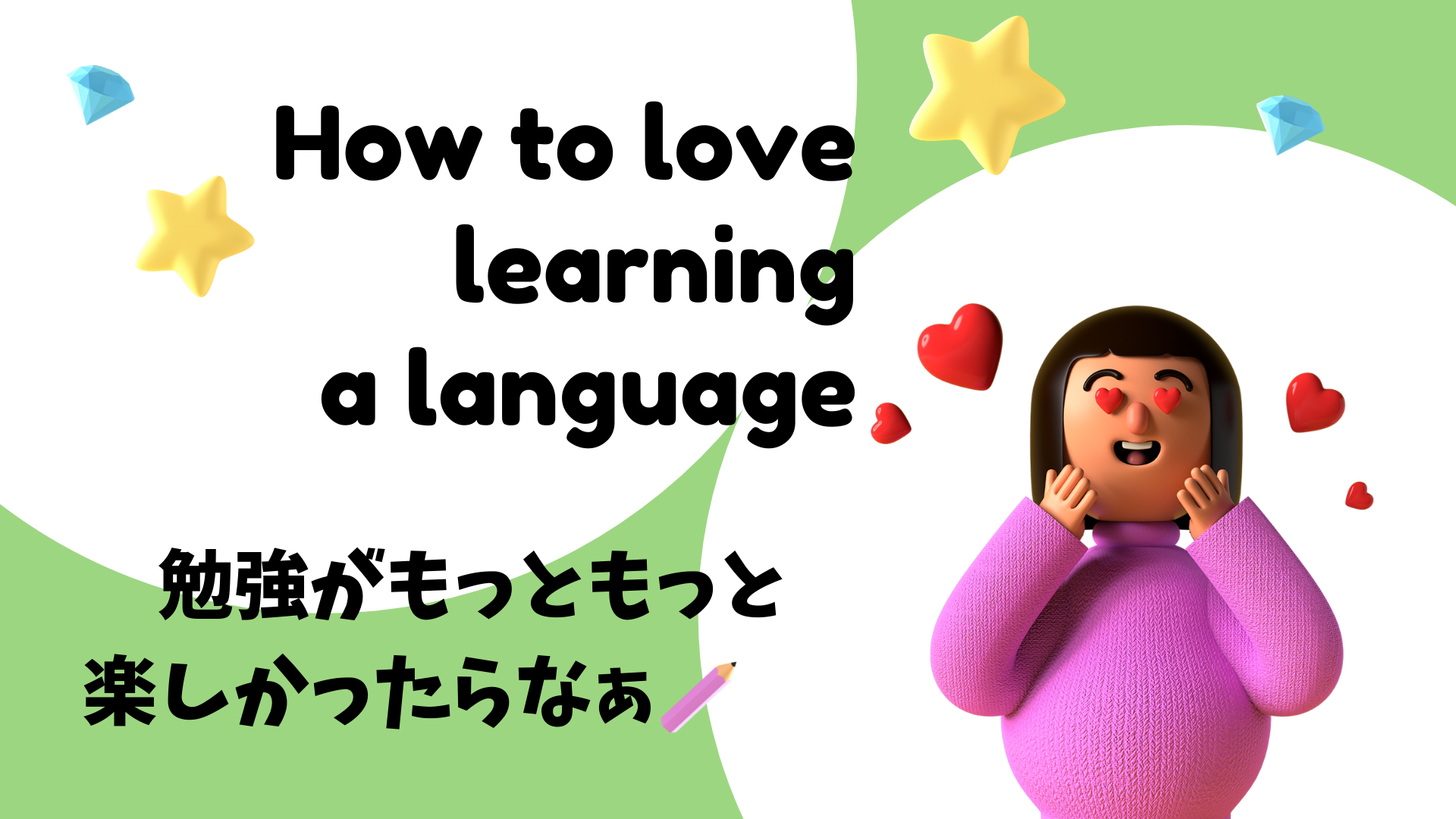
- Something feels wrong 🧗🏾目の前に立ちはだかる違和感
- A YouTube video appeared🤸🏾♂️ある動画との出会い
- Do you agree? disagree?🕹️賛成する?反対する?
- Difference between acquiring and learning 📝’習得する’と’学習する’の違い
- Do not study grammar📝文法を勉強するな
- Do not correct me or please correct me.📝訂正しないで欲しい、いや、して欲しい
- Teaching Proficiency through Reading and Storytelling📚物語を読みながら教える
- The most important things to remember🧠覚えておくべき最も大切なこと
- Do not forget a crucial treat from natural speaking🙊自然なスピーキングで得られるご褒美
- Let’s make a plan✨計画を立てましょう
- How to manage a speaking session👩🏻🏫スピーキングセッションの方法
- My reflection💞おわりに
- The real Challenge Learn From Zero
Something feels wrong 🧗🏾目の前に立ちはだかる違和感
I mentioned that a job offer made me determined to become an independent instructor rather than an employed teacher in the past article. Actually, this gave me another influence on my career journey.
以前の記事の中でお話しましたが、ある仕事のオファーがきっかけで語学教師ブロガーになることを決意した私なんですが、このオファー、実はそれ以外にも私に影響を与えてました。ある気づきを得たんです。
The offer was about teaching a group of beginners Japanese for 8-weeks. The school told me that they expected me to finish half of a textbook. They gave me two options for textbooks. One is “Japanisch, bitte!” and another is ”Marugoto: Japanese language and culture.” Also, I was told that the instruction can be in English.
その、仕事なんですが、知識ゼロの学習者に8週間日本語を教えるグループレッスンでした。スクールからは半分くらい教科書を終えて欲しいと説明を受けました。教科書については二種類提案されました。ひとつは、『Japanisch, bitte!』そしてもう一つは『まるごと』です。授業は英語で行っていいとも言われました。
Since I was unfamiliar with both textbooks, and it didn’t give me the ideas of how my instruction could go, it made me uncomfortable. Especially “Japanisch, bitte” is so unique curriculum that it lets learners learn Hiragana gradually not all at once, like each chapter 6-8 Hiraganas. It really confused me. Also, it made me feel uncomfortable with the fact that I couldn’t be comfortable with my long-hoping job. Like, shouldn’t I say I am a professional instructor? I seriously realized that I need to have more experience to teach zero-knowledge learners.
どちらの教科書もまったく初めてで、しかも中を見ても全然どうやって授業を進めていこうというアイデアが湧いてこなかったんです。『Japanisch, bitte!』はとてもユニークなカリキュラムでひらがなを各章に6〜8つくらいずつ教えるというものでした。それにすごく混乱しました。また、ずっと待ち望んでいた仕事がやっとできるかもしれないというのに、混乱に陥っている自分自身にもショックでした。こんなことでプロの教師と語れるのかと思えてきたんです。自分には知識ゼロの学習者に対する指導実績が必要だと感じました。
A YouTube video appeared🤸🏾♂️ある動画との出会い
Lately, I ran across a video. It, below, shows how an American language teacher acquired the Arabic language from zero in one year. This made me so excited. The method itself is not so special, and I think it is well-known among language teachers, in fact, it was something I learned in a class for Japanese teaching certification as well as a psychology class in college. But, I’ve never seen someone instruct me such elaborately, with a real example experience.
最近、ある動画に出くわしました。下にリンクを貼っていますが、アメリカの語学教師が知識ゼロから1年でアラビア語を習得するというもので、見ていてとてもわくわくしてきたんです。実はそのやり方自体は全然特別じゃなくて、実際、語学教師のみなさんなら名前はきっと知っているようなものなんです。事実、私は日本語教師検定のときにも勉強しましたし、なんだったら大学の心理学の授業でも聞いた覚えがあります。でも、今まで一度も実際にその方法を詳細に説明しながら過程と結果を出しているものは見たことがなかったんです。
The video’s summary💘ビデオのまとめ
It can be always encouraging to see how someone made progress in a certain duration. Even though it takes about an hour, it is worth watching to expand your knowledge that there are various ways to learn languages. Although I don’t have to accept all of the author’s ideas. The important thing is, that it encourages us to think about how can improve our own language experience better. Here is my summary of the video.
一定期間で進歩を見せるという類いのものってやっぱり引きつけられるものです。ビデオは1時間もあるんですけど、いろんな語学学習のやり方があるというのを知るという意味では一見に値するかと思います。とはいえ、作者の意見の全てに個人的に同意、というわけでもないです。重要なのは、どうやったら語学学習がもっとよくなっていくかなぁと考えさせてくれるっていうところですね。以下がビデオの中身の私のまとめです。
Right after watching this video, I had an in-person session with my language partner whom I’ve had an online session seven times before. It was just exciting. We both enjoyed our session so much more than the ones we had before. So, I got to like this method immediately.
実はこのビデオを見てすぐに、語学パートナーとセッションがあったので早速この方法を試してみました。今まで7回オンラインでその人とは話したことがあったんですが、比較にならないくらいこの方法は楽しかったです。というわけで、この方法がすぐに好きになりました。
Do you agree? disagree?🕹️賛成する?反対する?
I don’t think we should follow completely what this video tells us. Here is I think.
とはいえ、特にビデオの中の意見に全部賛同するというわけでもないです。私の意見はこんなカンジです。
Difference between acquiring and learning 📝’習得する’と’学習する’の違い

I agree with this point. When we speak our mother tongue, we don’t think, as you surely know. This resonates me well with my suspicion of Ankidroid, which is an app I used for vocabulary in the past. I ended up noticing myself not being able to manage to utilize the vocabulary I memorized into speaking. I am really into how an instructor can guide their learners efficiently to let them acquire knowledge.
この違いには同意です。母語を話すときはもちろん誰もが考えたりしません。この違いはAnkidroid(ボキャブラリーを覚えるために何度か使ったことがあります)で覚えた単語が実際の会話で全然使うことができないという私の中にある不信感に響きました。これが理由じゃん、と思ったわけです。で、インストラクターが学習者にどう効果的に言語を習得させるようにガイドできるのかということに、私は俄然興味が湧いてきました。
Do not study grammar📝文法を勉強するな
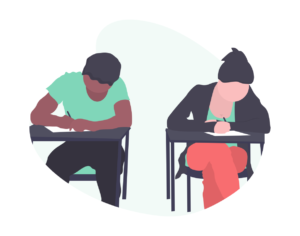
According to the video, grammar doesn’t help your execution of making a sentence, and it hinders your natural production of the language. What do you think? Worthy to believe?
ビデオによると、文法は文を作るための助けに全くならず、自然な発言の生成を邪魔するといいます。どう思いますか?信じるべきですか?
Do not spend your time in a vain attempt to master the language from grammar rules and word lists. You will not enjoy this tedious form of study, and it will not work.
Stephen Kaufman (15 languages polyglot)
言語を習得するために、文法規則や単語リストを覚えるという無駄な試みに時間を費やさないでください。この退屈な形の勉強は楽しむことができませんし、それゆえうまくいきません。
ステファン・カウフマン(15ヶ国語を話す多言語話者)
First of all, please do not worry about what you have learned already. It does help you, consequently!!!!
まず最初に言いたいのは、既にあなたが勉強した文法知識に心配しないでください。いつしかあなたを助けるのは間違いありません。
Secondly, it might be true when it comes to a quick execution: considering genuinely only speaking, grammar seldom helps it. When I think about how I acquired English phrases that people often use, I just tried to memorize full sentences and I didn’t need to break them down into grammar parts.
次に、すぐに発話するという点において、文法は役立たないというのは正しいかもしれません。単純に話すということだけ考えれば、文法はあまり即座の発話を助けてくれません。自分自身がどうやって英語を覚えたかを考えると、人々がよく使っている表現というものはそのまま記憶するようにして覚えました。文法に基づいて解釈しようとしたりは確かにしたことがありません。
However, grammar should contribute in a different way. If learners do not have enough natural speaking, then grammar greatly helps you to understand the language. After all, I think that it depends on how much you can get natural speaking.
しかし、文法は別の方法で私たちの言語学習に貢献があるはずです。もし学習者が自然なスピーキングに触れられる時間が十分に持てないとしたら、それでもその言語を理解したいとき文法はすごく役立ちます。つまるところ、文法が必要かどうかは、学習者がどれだけ自然なスピーキングに触れられるかにかかっていると思うんです。
I assume that not everyone can get this amount of natural approach unlike the author, therefore, I would like to explore how grammar can serve while still prioritizing the natural approach. This is one of my new goals!! I will find a way to integrate grammar into speaking-leaned-lesson.
私は、多くの人はこのビデオの作者のように自然なスピーキングに触れられる時間は多くないと思っています。なので、自然なスピーキングを優先しながらも、どうやって文法を補足教材として生かしていくかを探求したいと思っています。これは私の新しい目標の一つです。スピーキングに比重を置いたレッスンに文法知識をどのように統合させていくか、見つけていきたいと思います。
Do not correct me or please correct me.📝訂正しないで欲しい、いや、して欲しい
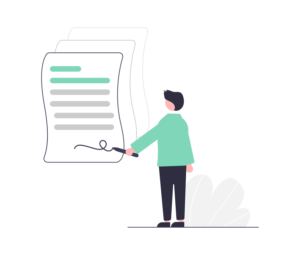
According to the video, the correction has no benefits. Therefore, we should ask native speakers not to correct us (; they emphasized the study by John Truscott.). Their explanation is that it doesn’t work thereby it is waste of time. It must be controversial. First, what struck me the most is that no scholars on screen did not provide any further empirical findings in the video even though it has passed about a half century since Krashen claimed his natural approach. (What linguistics have been done?)
ビデオによると、訂正は利益がないそうです。なので、学習者はネイティブスピーカーに訂正をしてくれないように頼むべきだと言っていました。(この点に関してはジョン・トルスコットの研究の成果を強調していました。)説明によると、訂正は間違いを正すのに役立たないので時間の無駄であるということです。とても議論を呼ぶに違いない意見です。最初に、私が印象的だったのは、ジョン・トルスコットの名前を挙げたことを除けば、研究者が実験に基づく成果をほとんど挙げなかったという事実です。クラッシェンがこのナチュラル・アプローチを提唱してから半世紀が経っているというのに、です。(半世紀何をしてるのか?ってカンジですよね。)
In the linguistics field, people distinguish between an error and a mistake. For example, someone inadvertently says “how is you?” instead of “how are you?”, this is a mistake. By the way, can you imagine someone could say this? I cannot! Why? Because people would have so much natural input in life about “how are you?” and easily learn subconsciously “how are you?” is a solid formula. Meanwhile, someone might say inadvertently “Germany beated Japan in an Olympics game yesterday.” And nobody corrects them and this person believes that ‘beat-beated-beaten as its conjugation’ and repeats the same mistake, which is called an error.
言語学の分野では、エラーと間違いは区別されます。例えば誰かがうっかり “how are you?”の代わりに “how is you?” と言ったとします。これは間違いと呼ばれます。ところでこの間違い誰かがしているところを想像できますか?私はできません!なぜかって?それは誰もが“how are you?”という表現について十分自然に出くわしているので、簡単に無意識に” how are you?”っていうのは一つの大切なフレーズなんだと理解できるからです。一方、誰かがうっかり “Germany beated Japan in an Olympics game yesterday.” (”昨日オリンピックの試合でドイツが日本を破った”)と言ったとします。beatの過去形は一般ルールに基づくbeatedではなく不規則ルールのbeatです。で、もしこれを誰も訂正しない場合、この発言者はbeatは一般ルールに基づく動詞で活用は’beat-beated-beaten’ だと信じ続け、同じ間違いを続けることでしょう。これをエラーと呼びます。
If we have enough natural speaking, we can correct without correction, like “how are you?” However, if we do not have enough natural speaking, we will keep making an error, like “German beated Japan.” Whether learners want to speak grammatically correctly or do not value speaking grammatically correctly depends on the individual.
もし学習者が十分に自然なスピーキングに触れられれば、訂正をされなくても自然と自分で正していけるようになるのでしょう。“how are you?”を誰もが自然と覚えるのがその例です。でももし十分に自然なスピーキングが得られない場合、学習者は“German beated Japan.” のようなエラーを繰り返し続けるでしょう。文法的に正しく話したいと望むか、文法的に正しく話すことに重きを置かないかは、結局のところ個人の好みの問題です。
I think that we don’t have to worry about mistakes, but a language teacher should care about an error. Along with lesson runs, instructors can notice some errors their students always make. That’s when instructors should intervene by providing much more natural input. I think neither corrected right sentences nor detailed explanation is needed necessarily, however, the students definitely need more comprehensible input relates to their error; ex) “Germany beat Japan yesterday? really? Last time Japan beat Germany.” they can provide more sentences used same verb conjugation.
私は、間違いは母語であってもしてしまうもので、気にする必要はないと思っています。でも、語学教師はエラーに注意を払うべきです。レッスンを進めていけば、学習者のエラーの傾向に気づくことができます。そして気づいたときが、語学教師が介入して自然なスピーキングのインプットを提供するときだと思っています。正しい文章にして示したり、必要な文法的知識を解説したりは必ずしも必要ではありませんが、間違いなく学習者にはこのエラーに関連する理解可能なインプットがもっと必要だと思うんです。例)”Germany beat Japan yesterday? really? Last time Japan beat Germany.”といったように同じ動詞の活用で別の文章を即座に提供して気づきを与えるのは学習者の役に立つはずです。
Teaching Proficiency through Reading and Storytelling📚物語を読みながら教える

Reading is fresh comprehensible input
Dr. Stephen Krashen
リーディングというのは新鮮な理解可能インプットである。
ステファン・クラッシェン博士
I couldn’t agree more with this method. When we get to know a word, it always entails a context, otherwise, this word just will be vanished from our memory. If we have a context, it helps us to memorize it with a lot of background information. For example, when it comes to memorizing Kanji, it is really helpful to note what this Kanji’s image is like- visualization. As you may notice, I am providing more articles about reading than anything else, since I do believe that language needs a certain world it plays out in.
この方法には大賛成です。私たちが言葉を一つ覚えるとき、いつもそこには文脈が伴います。そうでなければその言葉は結局忘れ去られるでしょう。文脈は、付随情報として記憶が生成される過程を強化します。例えば、漢字を覚えるとしましょう。このとき、漢字の形を視覚化しイメージとともに覚えることは、非常に役立ちます。お気づきかもしれませんが、このブログで提供している記事の多くはリーディングに関するものです。それはもちろん私が、言語というものはある世界観が提供されて初めて成り立つ、ということを信じているからに他なりません。
The most important things to remember🧠覚えておくべき最も大切なこと

“I want to know the most efficient way!!” I know, I feel you. I used to think that way. In the video, the author’s probably want to claim that the natural approach is the quickest and most efficient way of acquiring a language. Whether you agree or disagree, do not worry.
「っていうか、何でも良いからとにかく効率のいい方法を教えてよ」、って思いますよね。はい、わかりますよ。私もずっとそう思ってきました。このビデオの中で作者はナチュラル・アプローチこそが一番早くて最も効果的な言語を習得する方法だ、と伝えたいんだと思います。あなたがこの考えに賛成でも、反対でも、大丈夫ですよ。
Learning deeply means learning slowly.
Epstein, David. Range: Why Generalists Triumph in a Specialized World. 2019.
深く学習するということはつまりゆっくり学習するということ
デイビッド・エプスタイン: RANGE(レンジ)知識の「幅」が最強の武器になる, 2019
In his book Range, David Epstein, a journalist, explores relationships between performances and efficiency. He reports that researchers claim that “the slowest growth occurs for the most complex skills.” If you want to master your target language, you should relax and enjoy your own struggling slow path. Therefore, your motivation is the most important factor to let that happens. If you are interested in grammar, please enjoy learning it.
ジャーナリストのデイビッド・エプスタインは著書『Range』の中で、パフォーマンスと効率の関係性についてふれており、研究者のこんな発言を引用しています。「より複雑な技能は習得は、最もゆっくりと習得させたときに最も多く発生する。」もし、私たちが言語を習得したいなら、私たちはリラックスしてこの苦しくてゆっくりとした習得のプロセスを楽しむべきなんです。それが言語という複雑な技能の習得に役立つんです。ですから、私たちのやる気こそが最も重要な要素です。
If you are interested in grammar, please enjoy learning it. If you are interested in writing Kanji, you should enjoy practice writing it. What attracts you the most will lead you to your success. And, please do not worry especially when it takes time, because when you are struggling, that is when your brain is learning the most. Be careful of a trap of the temptation of efficiency, it is fleeting progress; it has scientifically been proven.
もし、文法に興味があるなら、ぜひ勉強を続けてください。もし漢字を書けるようになりたいなら、漢字の練習を楽しんでください。私たちが興味を持ったことこそが、私たちが言語を習得するのに最も役に立ってくれるんです。そして、特に、”時間がかかるなぁ、あぁどうしてまくできないんだろう”と思うようなときは心配しないでください。そんな時間こそがあなたの脳が学習を一番吸収している瞬間なんです。効率的という誘惑の罠に引っかからないでください。効率のいいものは、結局すぐに忘れていってしまうということは科学的に明らかにされています。
Do not forget a crucial treat from natural speaking🙊自然なスピーキングで得られるご褒美
One thing that the author didn’t mention explicitly but I want to make sure to let you aware is that this approach should enable learners to speak less accent and be more practical.
ビデオではっきりと指摘されていなかったことで、見逃さないで欲しいことの一つに、自然なスピーキングは学習者が外国人丸出しのアクセントを身につけるのを防ぎ、より実用的なスピーキングに導くということがあります。
One of the fixated topics among learners is that how to speak naturally, like native speakers. It seems arduous to achieve. Why? Probably because of the grammar-based method, which enables learners to speak without natural input.
学習者の間で、常に関心を集めるトピックの一つに、ネイティブのように話せるようになるにはどうしたらいいか、というのがありますね。達成するのがとても大変そうに思えますよね。でもどうしてでしょう。これって、多分、文法中心の学習が学習者を自然なインプット無しに話せるようにさせてくれるからじゃないでしょうか。
Once learners grasp a sense of their target language, they start to worry about how their pronunciation sound. For example, a YouTuber, Dogen, is super popular among Japanese learners thanks to his natural pitch accent. Natural accent becomes an important factor. All the learners hope if they sound like native speakers.
ある程度の目標言語の感覚がわかってくると、学習者は自分の発音を心配し始めます。例えばYoutuberのDogenさんはその自然な発音のスキルで日本語学習者の間ではとても人気があります。ある程度文法がわかってくると自然な発音が重要な要素になっていくんですね。ネイティブみたいに話したいんです。
Me too. When I was learning English intensely, I took a class for shadowing at an online school. The school provides how to shadow in order to acquire more natural and fluent speaking skills. I practiced seriously because I wanted to sound like a native speaker seriously. But, you know what, it was so boring. It was like Buddhism practices.
私もそうでした。英語を真剣に勉強していた頃、発音を重点に置いたオンラインスクールでシャドーイングのクラスを取っていたことがあります。そのスクールでは自然な発音を身につけるためにシャドーイングする方法を教えていました。私も真剣にネイティブみたいに喋りたかったので真剣に練習しました。でもね、これ、すっごく退屈な訓練でした。まるで仏教の修行です。
In fact, the YouTuber Dogen suggests that it is important to be aware of Japanese pitch accent at the beginning of your learning journey since your pronunciation ingrains in your brain cognition and lets you make it hard to distinguish or articulate natural speaking, once it gets used to it.
実際、Dogenさんはこう言っています。日本語学習の初期から、ピッチアクセントに留意することが大事だと。自分で発音をした音も、ネイティブが発音する音と同じ様に自分の脳に蓄積されていくので、自分の音の情報ばかり蓄積されて脳が慣れてしまうと、自然なスピーキングとの違いが認識できなくなったりその音を作るのが難しくなったりするんですね。
Grammar-based learning is great because it enables you to learn without native speakers. However, when you feel you have more energy to work on pronunciation, it might cost so much more time to fix your-complete-foreigner-ish accent.
文法中心の学習はすごいです。ネイティブスピーカー無しでもたくさんの知識が得られます。でも、さぁ、そろそろ発音に取り掛かるかと思ったころには、すっかり外国人の発音に慣れきった自分の脳を訓練し直すのに、膨大な時間をかける必要がでてくるかもしれません。
Let’s make a plan✨計画を立てましょう
How to apply this method🏃🏻この方法をどう取り入れるのが良いか
I would like to see how this method works. But, I feel that it is very challenging to have a native speaker for all learners. I would like to suggest combining two ways. While tracking the time of your self-learning, add the natural speaking time as much as possible. In order to motivate, schedule and experiment, I would recommend setting a certain duration for this natural speaking, such as 100 hours.
私はこの方法が実際にどう効果的なのかにとても興味があります。でも、同時にネイティブスピーカーを確保することはとてもむずかしいことだとも感じています。ですので、2つの方法を組み合わせることをおすすめします。どれだけ自分の独学に時間を割くかも把握しつつ、自然なスピーキングの時間の時間を作れる限り持つ方法です。やる気をキープし、スケジュールを徹底し、この実験を成功させるために、一定時間を設定することをオススメします。例えば自然なスピーキングを100時間達成する、といった様に。
Aim to 100 hours speaking time🏃🏻♀️100時間のスピーキングを目標に
1. Let’s set how many hours per week you have time to speak feasibly, as of now!
1. 一週間にどれだけ自然なスピーキング時間を持つことができるか、現実的な時間数を設定しましょう。
2. Record all of your sessions. And, add up the speaking time while reviewing by listening to your audio. (You should schedule this new routine in your everyday life, such as your lunchtime for 15 mins or before going to bed for 30 minutes.)
2. すべてのスピーキングのセッションを録音しましょう。そしてこれを聞いて復習をする時間を確保しましょう。(これを新しいルーティンとして時間を確保し、毎日の生活に取り入れてください。例えば昼休憩に15分、寝る前に30分といった感じです。)
3. How many weeks will you need to hit 100 hours? (This is going to be a feasible goal)
3. 100時間達成するのに何週間かかりますか?(これがまず目指すべき実現可能なゴールということになります。)
4. How many hours would you ideally speak? Try expanding the speaking time as much as possible. (You might be able to shorten your feasible goal!)
4. 理想的にはさらに何時間スピーキングの時間を持ちたいですか?とにかくこのスピーキングの時間を可能な限り増やしてみましょう。(そうすると100時間の達成をもっと早くすることができるかもしれません。)
Set a goal for your self-learning🏃🏻独学時間の目標設定
- How many hours you have time for self-learning? Let’s figure out what would you like to work on, and set how many hours would you like to work on.
- 週に何時間独学に割けますか。その独学時間に何を勉強したいですか。時間数と学習内容を設定しましょう。
How to manage a speaking session👩🏻🏫スピーキングセッションの方法
I would like to suggest creating your own rule in order for you to have a comfortable safe environment, which is important to let your brain relaxed. (Actually, this is another Krashen’s theory, called the Affective filter hypothesis.) Here is my adjusting rule example.
自然なスピーキングのセッションの方法については、自分のルールの作成をおすすめします。安心して望める学習環境は学習効果に反映します。つまり、脳がリラックスして学習できる場、が重要なんです。(実はこれもクラッシェンの提唱理論の一つで情意フィルター仮設というんですよ。)では以下は私が自分なりに調整したルールの例です。
Set the your own rule🏃🏻自分のルールを作る
How to proceed🏃♂️進め方
Flow’s suggestion🏃🏻♀️流れの目安
- the beginning/ はじめGreetings, Magazine
(Begin with clothing and colors.)
- after 10 hoursMagazine, TPR
- after 30 hoursMagazine, TPR, Storytelling
- after 50 hoursMagazine20%, Storytelling 80%
My reflection💞おわりに
When I started to learn German, I have already some strategies of how to do a language exchange. I usually use Hellotalk and rarely use Tandem, which both the author mentioned in his video. What I’ve done first was to add German as my new target language. Then, the next step was to learn German’s basic grammar in order to begin language exchange.
Until I watched this video, I didn’t notice that how my understanding of the language learning process was influenced by the domination of grammar education. I had simply denied there was no such way for people to interact with one another without a certain grammar knowledge.
このビデオを見るまで、気づいていませんでした。偏った文法教育の影響のせいで、語学学習というものが文法ありきでないと成り立たないと信じている自分に。シンプルに、文法の知識もなく人に会って、有意義に人と交流することなんてできない、と信じ切っていたんです。
When my friend who is a beginner learner of the Korean language was told by one Korean language speaker that the discrepancy of the language proficiency between the two of them was crucial thereby he declined the language exchange. I simply thought that was an understandable choice.
私の友人に初心者韓国語学習者がいるんですが、彼女が言語交換パートナーにこう言われたんです。語学力の差が大きすぎるから言語交換を続けることはできない、と。それを聞いたときこう思いました。その意見は理解できると。
Now, I genuinely wonder, how much this grammar-based domination hinders relentlessly for us from having real language-speaking experiences. This is just sad.
今は、心から思うことは、この文法への偏重思考がどれほど、私の、そして語学学習者のみなさんの心に侵入して思い込みを作り、私たちが学んでいる言語を話しながら学んでいくという貴重な機会を、無慈悲に奪っているのだろうか、ということです。
When I took a history class in middle school or something, I was amazed by people, who learned a language, traveled abroad, studied there, returned, and contributed to the nation even one hundred years ago. Around that era, it is no wonder, that grammar was the only way they could begin learning the language. (Honestly, lecturing grammar is an easier part for a language teacher. Is this caused by the laziness of language teachers?)
中学生くらいの頃、社会の授業か何かで、すごく昔に外国を旅したり、留学したり、帰国して勉強したことを伝え国に貢献する偉人の話にすごくびっくりした覚えがあります。100年も前にそんなことができたの?信じられない!という感じ。その当時、語学学習の方法として文法が中心にならざるを得なかったのはうなずける話です。(語学教師にとって文法を説明するのは簡単なほうの仕事だと思います。というか、語学教師の怠慢がこの状況に陥らせたんでしょうか?!)
But, now the way of communication has evolved so much, and we are able to enjoy more ways to learn a language. Since our brain likes what we usually do, it might be the reason that the theory of a half-century-ago is in the floating position, while the grammar method dominates.
でも、このコミュニケーション方法が進化した今、私たちは様々な方法を試すことができると思っています。人間の脳というのは、本当にいつもすることを繰り返すのが好きなので、だから今も文法学習が圧倒的に支配していて、半世紀前の学習方法が宙に浮いた位置のままなのも、多分それが理由だと思うんです。
I just feel like we should be eager to absorb various ways to enjoy acquiring a language, taking advantage of our convenient technology! And, I really hope that I will find my own way and support language learners with it.
なんというか、もっと様々な方法に貪欲になって言語習得を楽しむべきなんじゃないか、と思うんですよね。個人的には、自分なりの語学習得の方法を開拓して、もっともっと語学学習者をサポートしていけるようになれたらいいなと思っています。
The most intriguing point of the video for me is that he emphasizes the precious communication experiences through learning languages. It is going to be your life-long relationship that let your life brighter, more meaningful, and more joyful. Might speaking with someone be the reason that you determined to learn a language in the first place? Aren’t we compromising our joy due to grammar domination? And addition to joy, do not forget the gift of the acquisition of natural accent altogether.
このビデオで一番心を動かされた箇所は、作者が言語習得を貴重なコミュニケーションを育む経験ができる場だと説明していた箇所でした。全く同感です。長く続く関係を、自分がまだ話せない言語を話す話者と作れるかもしれないんです。興奮しますよね。そしてそれは、語学学習者の人生に彩りを与え、意味を与え、喜びを与えます。誰かと話したい、それが語学学習を始めた理由だったんじゃないですか?文法が大切と思い込みすぎてこの喜びを犠牲にしてませんか?そしてこの喜びとともに自然なアクセントが身につけられるというメリットも忘れないでください。
We can enjoy and learn a language with more fun by this method. And, your joy and excitement boost your learning experience faster, more significantly, and more successfully. As I said, it has to be a slow process. Therefore, we need joy. and it lets our cognitive action more productive.
私たちはこの方法で語学学習をもっと楽しく、することができると思います。楽しいこと、ワクワクすることは、私たちの学習経験をより加速させ、より意味をあたえ、成功に導きます。語学学習はゆっくり育んでいくことが必要なものですし、だからこそワクワクが必要なんです。それが、脳の活動をより生産的にしてくれるんです。
Thanks for reading. I really want to know what you think! Please feel free to let me know.😆 Also, I am thinking of making content to record this 100-hour experiment on this blog. If you are interested in it, please let me know!🥳
読んでくれてありがとうございます!ぜひあなたの意見も知りたいので教えてください😆それから、このブログではこの実験を実際にブログ内で記録にして残していくことを考えています。興味のある方は私にご連絡ください🥳
The real Challenge Learn From Zero
Now, my friend Dan and I have started our new challenge that absorbs natural Japanese input in 100 hours. You can start acquiring Japanese with our videos from zero knowledge. Otherwise enjoy seeing how far Dan can go!!!!
さて、私と友人のDanは100時間のナチュラルインプットの挑戦をはじめました。日本語をゼロから始めたいみなさん。ぜひ私達のビデオでいっしょに練習しましょう。もう日本語をはなせるあなたは、Danがどれくらい成長するかを見るのもいいと思いますよ!

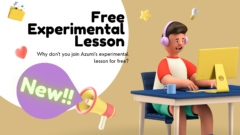
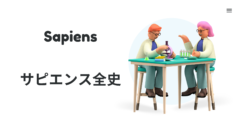
コメント